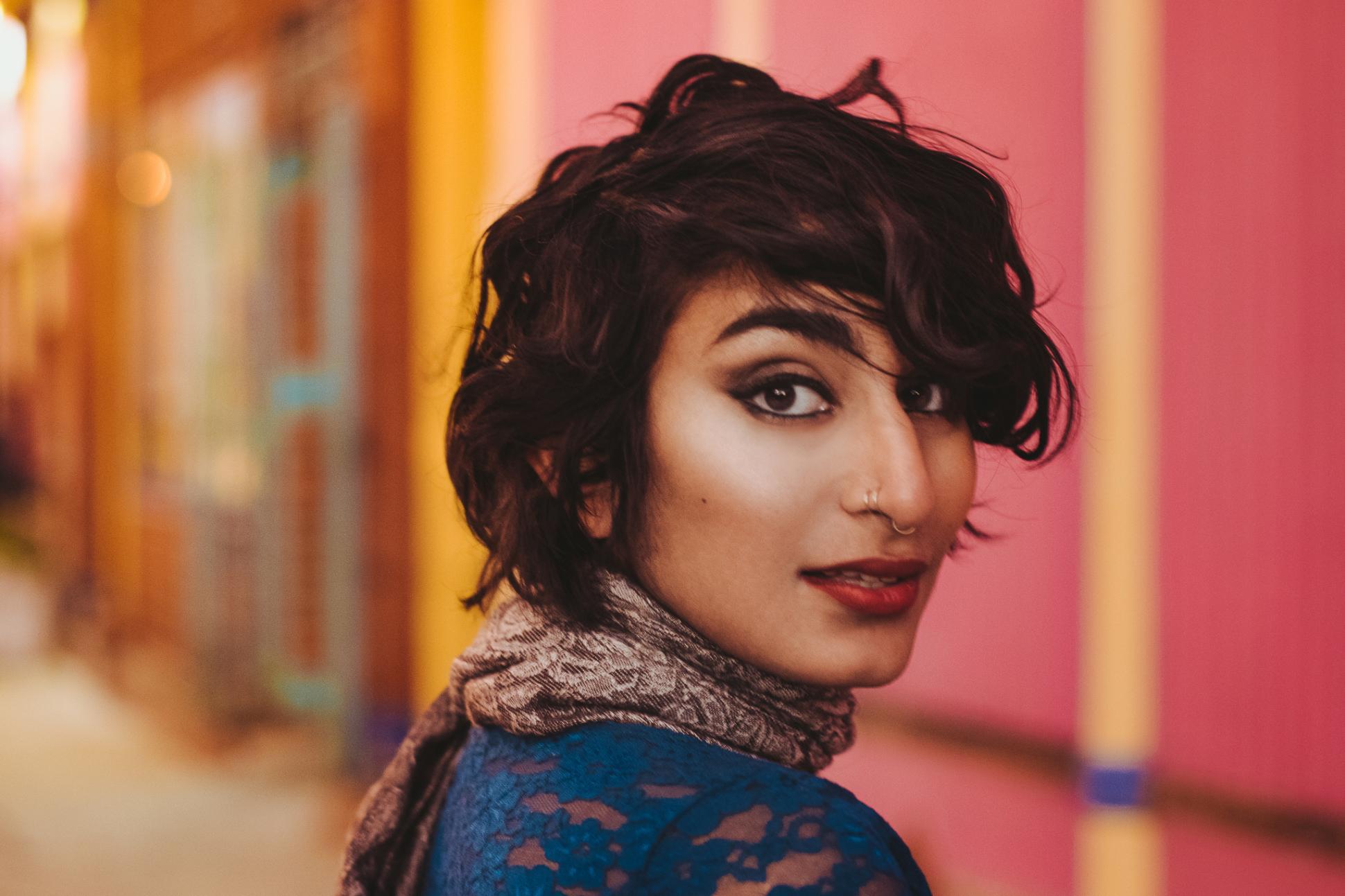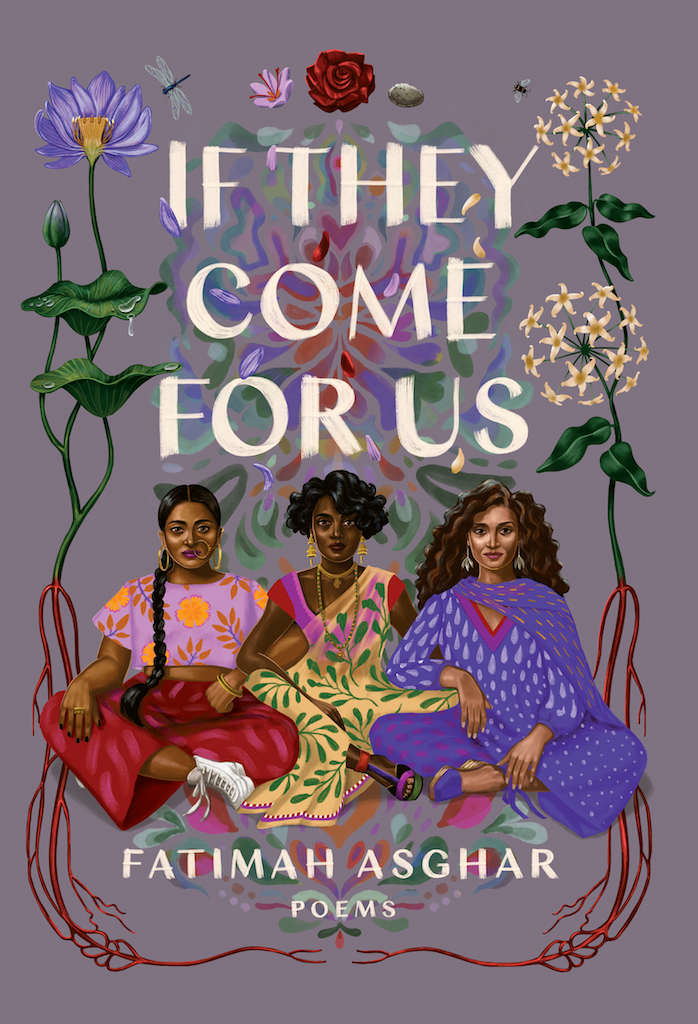1945: my grandfather stepsoff a train in Jammu & Kashmir.drinks pani from the Muslim fountain.my grandfather teachesall the children in his village.there are menwho won’t touch his hands,afraid his Muslim blood dirty.when he passes they bend& pet the stray dogs instead.—1947: a Muslim man sips whiskey& creates a country.Jinnah’s photo framed & hung on the doorsof his believers.freedom spat between every paan-stained mouth as the colonizers leave& the date trees dancein Ramzan’s winds.—1947: in fall the birdsfly south for safetyto hide from the cold.1947: in fall my family flockssouth to Pakistan for safetyto hide from their neighbors.—1945: the allies openthe camps in Germany& the photos roll into America.the westerners end their war& declare: never again.—1947: a man sees a girlcrying as she begs for waterhe stares for a while & thenlights her on fire.—1946: a woman registers to vote& then registers her grandmother,long dead.she casts a ballot for India to stay unitedchanges into her grandmother’ssari & casts the vote, again.—1947: the cannons sound duringRamzan & everyone holds their breathto find who survived. Laylat al-Qadrbirths two new nationsno one knows the boundaries.bodies spoon like commas, waitinglinking, waiting, linking.—2015: a Lahori naan sellerwakes to his old nightmare—hacking a Sikh family to death.he falls to his knees & pleadsAllah, forgive me. please forgive me.—1947: a woman washes the bodyof a stranger lying on the street.every dead woman blurs into another.maybe she could be my sister she saysas she performs the ghusl, as her ownsister never returns home.—1943: famine spreads throughthe British Raj.in Bengal three million diebones of skin, arms sharp as machetes.—1947: summer, in a Bihari marketplacethere’s nothing but sag & edible flowers.lines of people crowd the center.their hands: empty.—1993: summer, in New York CityI am four, sitting in a patch of grassby Pathmark.an aunt teaches me how to tellan edible flowerfrom a poisonous one.just in case, I hear her say, just in case.—1947: a man attacks Jinnah on the street.another man spits on Nehru.my family died for your dreamthey say.bring me back my family.bring me back my family.—1947: in Jammu the railway staff hoseblood off the platform.it has been an unusual rain this yearthey say, the bloodwaterspraying onto the grass. the stray dogs layabout, bloated with flesh.it has been an unusual rain this yearsays a Muslim general, machete in his hand,his troops surrounding a sleeping Hinduvillage, as the sky above Rawalpindi wakes.
Partition
Feature Date
- June 11, 2019
Series
Selected By
Share This Poem
Print This Poem
Copyright © 2018 by Fatimah Asghar
All rights reserved.
Reproduced by Poetry Daily with permission.

Photo by Cassidy Kristiansen
Fatimah Asghar is a nationally touring poet, performer, educator, and writer. She is the writer of Brown Girls, an Emmy-nominated web series that highlights friendships between women of color. She is a member of Dark Noise and a 2017 Ruth Lilly and Dorothy Sargent Rosenberg Poetry Fellow.
“An outstanding collection of poetry . . . wonderful play with form . . . These poems cover so much—identity, loss, brown girlhood, the complicated bonds of family, what home is when home is torn apart. Much to admire here. [I] will be thinking about these poems for a long time to come.”
—Roxane Gay
"[Fatimah] Asghar presents a debut poetry collection showcasing both a fierce and tender new voice. . . . Through simultaneously lyrical and frank poems like ‘Kal,’ ‘Ghareeb,’ and ‘Halal,’ Asghar allows poignant contradictions to rise to the surface.”
—Booklist
“In forms both traditional . . . and unorthodox . . . Asghar interrogates divisions along lines of nationality, age, and gender, illuminating the forces by which identity is fixed or flexible. Most vivid and revelatory are pieces such as ‘Boy,’ whose perspicacious turns and irreverent idiom conjure the rich, jagged textures of a childhood shadowed by loss.”
—The New Yorker
Poetry Daily Depends on You
With your support, we make reading the best contemporary poetry a treasured daily experience. Consider a contribution today.




